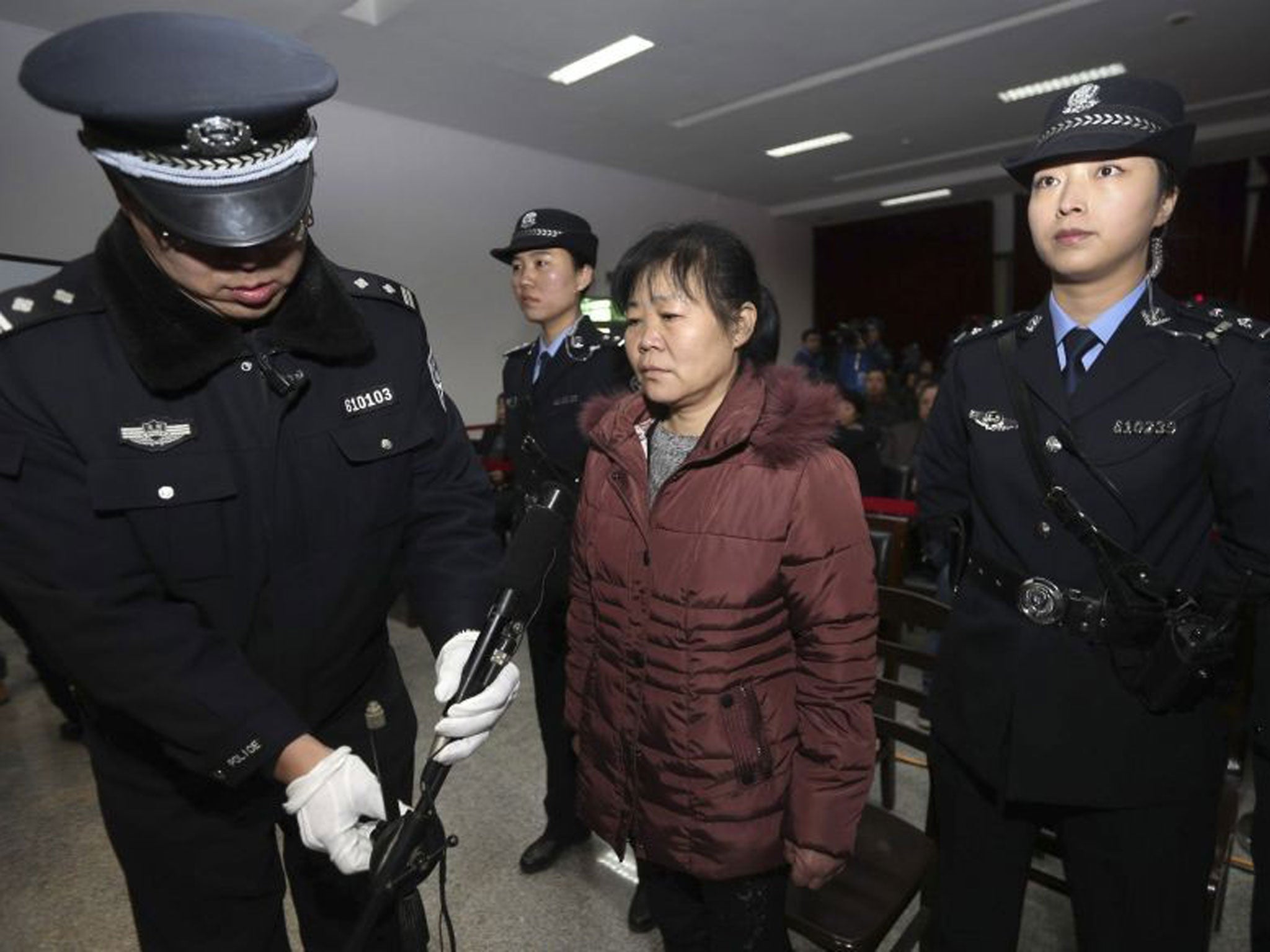Chinese doctor sentenced to death for stealing babies and selling them into trafficking
Obstetrician Zhang Shuxia convinced parents to give up their babies, saying they had been born with congenital problems

Your support helps us to tell the story
From reproductive rights to climate change to Big Tech, The Independent is on the ground when the story is developing. Whether it's investigating the financials of Elon Musk's pro-Trump PAC or producing our latest documentary, 'The A Word', which shines a light on the American women fighting for reproductive rights, we know how important it is to parse out the facts from the messaging.
At such a critical moment in US history, we need reporters on the ground. Your donation allows us to keep sending journalists to speak to both sides of the story.
The Independent is trusted by Americans across the entire political spectrum. And unlike many other quality news outlets, we choose not to lock Americans out of our reporting and analysis with paywalls. We believe quality journalism should be available to everyone, paid for by those who can afford it.
Your support makes all the difference.A doctor in China has been sentenced to death after she admitted to stealing babies and selling them on to human traffickers.
Obstetrician Zhang Shuxia convinced parents to give up their babies by telling them they had been born with serious illnesses. A court heard how she then sold the infants on to middlemen across central and eastern China.
Zhang, who worked at the Fuping Maternal and Child Healthcare Hospital in the northwestern province of Shaanxi, was sentenced to death with a two-year reprieve. Such terms are often commuted to life imprisonment after that the reprieve period expires.
The trafficking ring which centred on Zhang was exposed following the most recent abduction last July. The parents in that case went to police with their suspicions that their baby had been trafficked, and the doctor and a number of other suspects were arrested. The child was eventually found and returned to his parents.
In total, Zhang was found guilty of selling seven babies to traffickers between November 2011 and July 2013, according to a written judgement from the Weinan Intermediate People's Court.
While six of the babies were rescued, one little girl died.
But the Xinhua news agency quoted police officials saying a further 50 related cases are still being investigated, including 26 involving Zhang.
Child trafficking is a big problem – and big business – in China, despite severe legal punishments that include the death penalty. In the July case, Zhang received 21,600 yuan ($3,600) when she passed a baby boy to a human trafficker, who sold the child on for 59,800 yuan ($9,900) to a couple in the central Henan province.
Despite China’s recent relaxation of the one-child policy, allowing couples to have two children if either parent was themselves an only child, the traditional preference for male heirs and ignorance of the law still drive people to turn to human traffickers.
The case has added to public frustration with China's medical profession over rampant bribery and other abuses.
“Zhang used her position as medical personnel to fabricate reports about the infants, saying they suffered from birth defects or diseases that were hard to cure,“ the court said in its judgement.
“She abducted and sold several new-born infants, violating professional and social ethics.”
Join our commenting forum
Join thought-provoking conversations, follow other Independent readers and see their replies
Comments